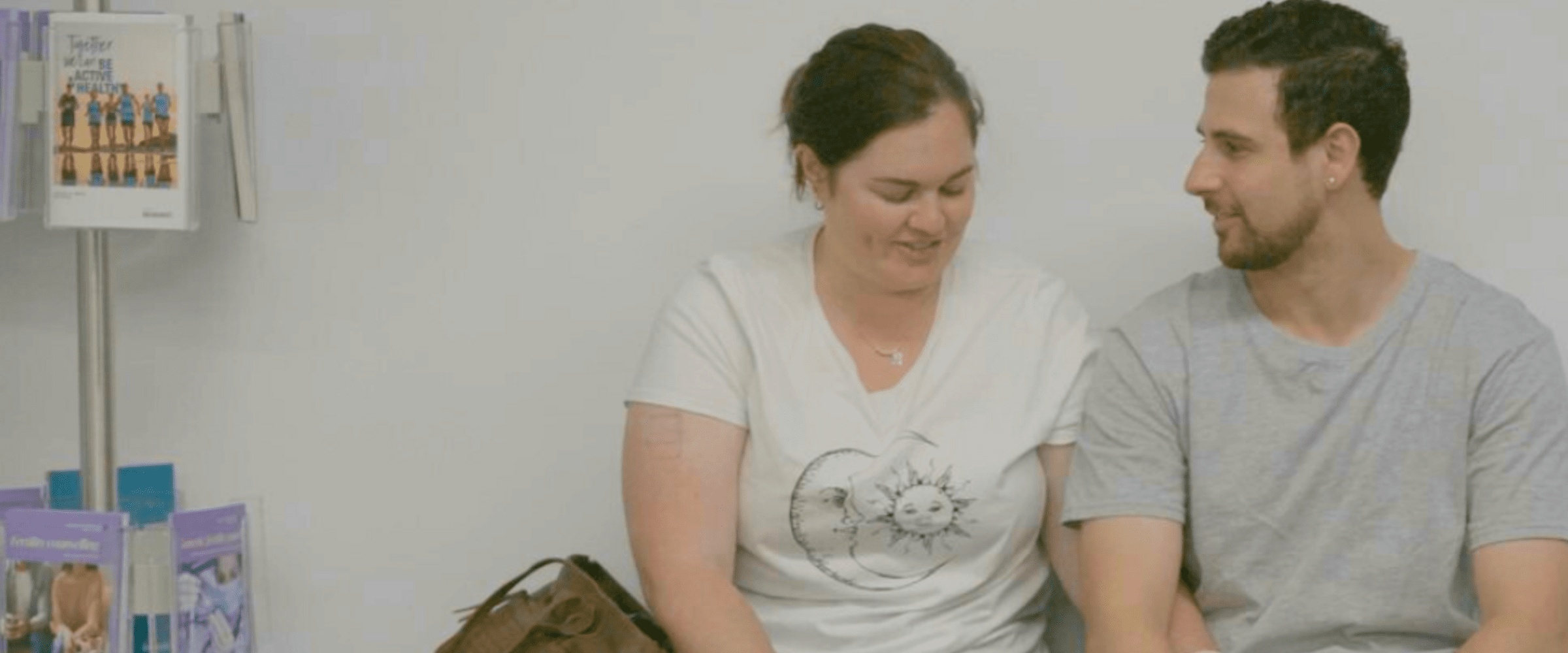
Your questions about polyps answered: Q&A with Dr Albert Jung
We’ve all been there with our faces aglow from our phone screen in the small hours, panic searching for answers about anything from the first signs of conception through to are Jacuzzi’s bad for sperm. Maybe, you’ve found yourself going down Dr Google’s rabbit hole searching what are uterine polyps, how do I get rid of polyps, or even natural teas for polyp treatment? Fret not; you're far from alone.
In fact, Big Miracles couple Maddie and Nathan, recently shared their fertility challenges stemming from uterine polyps and PCOS. We saw the couple navigate everything from investigating potential diagnosis and cause for fertility delay alongside their Fertility Specialist and undergoing treatment for polyps.
This has since inspired Aussies who are also dealing with infertility hurdles to ask more questions about polyps.
Here, Brisbane-based fertility specialist, gynaecologist and laparoscopic surgeon Dr Albert Jung answers your frequently asked questions about polyps. His expertise helps to break down the jargon and give you information you can rely on.
Q: What are polyps, and how do they relate to fertility?
A: Polyps are abnormal, benign tissue growths that can occur in various parts of the body, including the uterus. In the context of fertility, uterine polyps can be of concern as they may interfere with the implantation of a fertilised egg.
Q: Do all women with polyps face fertility issues?
A: Not necessarily. While uterine polyps can be associated with fertility problems, not all women with polyps experience difficulties in conceiving. The impact on fertility depends on factors such as size, location, and the number of polyps.
Q: What are the symptoms of uterine polyps?
A: Symptoms can include irregular menstrual bleeding, heavy periods, and spotting between periods. However, some women with uterine polyps may not experience any noticeable symptoms, making regular check-ups important for early detection.
Q: How are uterine polyps diagnosed?
A: Diagnosing uterine polyps often involves a combination of a pelvic exam, ultrasound, and hysteroscopy. A hysteroscopy is a procedure where a thin, flexible tube with a light and camera is inserted through the cervix to examine the uterus. Most commonly they are diagnosed on ultrasound scan.
Q: Can uterine polyps be a cause of recurrent miscarriages?
A: Yes, uterine polyps have been linked to recurrent miscarriages. The presence of polyps may interfere with the embryo’s implantation or disrupt the blood flow to the uterus, increasing the risk of miscarriage.
Q: Are polyps a common issue for women of reproductive age?
A: Uterine polyps are more common in women in their 30s and 40s, but they can occur at any reproductive age. Factors such as hormonal imbalances, obesity, and certain medications may contribute to their development.
Q: How are uterine polyps treated?
A: Treatment options include removal through hysteroscopy, a minimally invasive procedure. In some cases, hormonal medications may be prescribed to regulate the menstrual cycle and reduce the risk of polyp recurrence.
Q: Can uterine polyp removal improve fertility?
A: Yes, removal of uterine polyps can enhance fertility, especially if they were identified as a potential cause of reproductive challenges. After removal, many women go on to have successful pregnancies.
Q: Can polyps come back after removal?
A: While recurrence is possible, the likelihood is reduced with proper treatment. Regular monitoring and follow-ups with healthcare providers are essential to address any potential recurrence promptly.
Q: When should I seek medical help if I suspect uterine polyps may be affecting my fertility?
A: If you are experiencing irregular periods, heavy bleeding, or have concerns about fertility, it’s advisable to consult with a healthcare professional or fertility specialist. They can conduct the necessary tests and provide personalised guidance based on your unique situation.
Understanding the relationship between uterine polyps and fertility is crucial for women trying to conceive (especially if trying has become trying). Early detection, proper diagnosis, and timely treatment can significantly improve the chances of a successful and healthy pregnancy. If you have concerns, don't hesitate to reach out to get started with an appointment on 1800 111 483.
